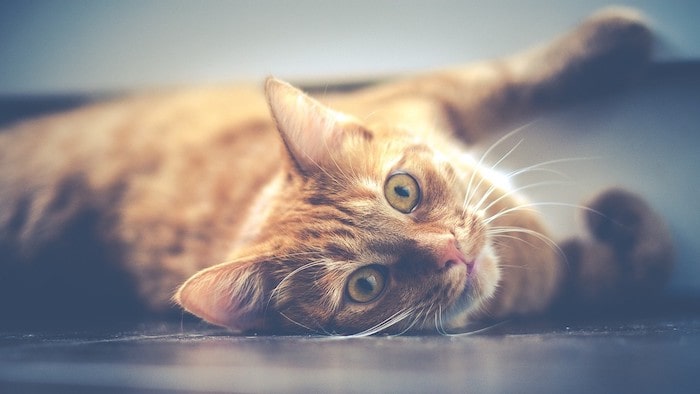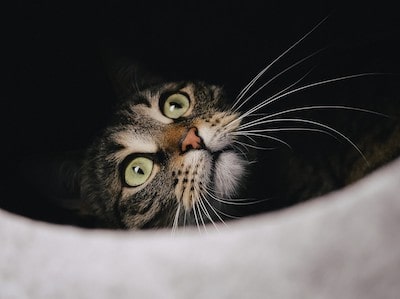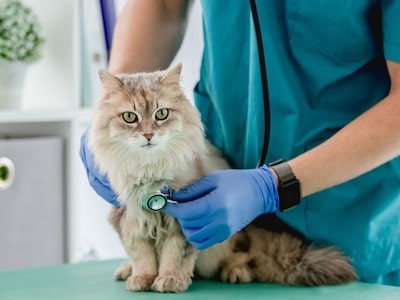Cats are unique creatures, and one of their most fascinating features is their whiskers. Whiskers, also known as vibrissae, are specialized hairs that grow on a cat’s face, nose, and other parts of their body.
These hairs serve a sensory function that helps cats navigate their environment and communicate with other cats. But what happens when a cat loses its whiskers? Do they grow back?

In this article, we’ll explore the science behind cat whiskers and answer the age-old question, Do cat whiskers grow back? We’ll also discuss the importance of whiskers for cats and what to do if your feline friend’s whiskers don’t seem to be regenerating.
So, let’s dive into the mysterious world of cat whiskers and find out what lies beneath their furry exterior.
Why do cats have whiskers?
Cats have whiskers, also known as vibrissae, for a variety of reasons. As per PetMd “cat whiskers may be involved in communicating with other cats and even observant owners.” These specialized hairs are thicker and stiffer than other types of fur and are rooted deeper in a cat’s skin. Here are some of the reasons why cats have whiskers:
- Sensory Functions: Whiskers are highly sensitive to touch and vibrations, and they contain nerve endings that send signals to a cat’s brain. These signals provide important sensory information that helps cats navigate their environment. For example, whiskers can help a cat detect the presence and location of prey, predators, or obstacles.

- Balance and Coordination: Whiskers are not only present on a cat’s face but also on its legs and tail. These hairs help cats maintain balance and coordination by providing feedback about their body position and movements.
- Communication: Cats also use their whiskers to communicate with other cats. For example, a cat may flatten its whiskers against its face to show fear or aggression, or it may hold its whiskers forward to indicate curiosity or playfulness.

- Hunting: Whiskers play an important role in hunting for cats. They can help a cat judge the distance between itself and its prey, which is crucial for successful hunting. Whiskers also help cats to feel the texture and shape of prey, which assists in determining whether the prey is worth pursuing or not.
- Protection: Whiskers also provide a protective function for cats. They can help a cat sense when it is getting too close to a dangerous object or surface, such as a hot stove or a sharp object. Whiskers can also help cats avoid getting their eyes scratched or injured during a fight with another animal.

- Temperature Regulation: Whiskers can help cats regulate their body temperature. Since whiskers are rooted deeper in the skin than regular fur, they can detect changes in temperature and air currents. This allows cats to determine the best place to rest to avoid extreme heat or cold.
Do cat whiskers grow back?
Yes, cat whiskers do grow back. However, the rate of regrowth can vary depending on several factors such as the age of the cat, its overall health, and the extent of damage to the whisker.
Cat whiskers are not like normal hair, as they are specialized sensory structures with deeper roots in the skin. Therefore, when a whisker is lost or damaged, it can take several weeks or even months for it to regrow completely.

Typically, cats will shed their whiskers naturally as they grow, and new whiskers will replace them. However, if a cat loses a whisker due to injury or accident, the regrowth process may be slower, and the whisker may grow back thinner or misshapen.
If a cat’s whiskers are not growing back or if they are growing back abnormally, it could be a sign of an underlying health issue or nutritional deficiency. In such cases, it’s important to consult a veterinarian to determine the cause and appropriate treatment.
What to do if your cat’s whiskers don’t grow back
”A cat uses its whiskers to sense the world.” says Dr. Sam From mrfrs If you notice that your cat’s whiskers are not growing back or growing back abnormally, it’s important to consult a veterinarian. This could be a sign of an underlying health issue or nutritional deficiency that needs to be addressed.
Here are some steps you can take to ensure your cat’s health and well-being:
- Schedule a Veterinary Visit: Your veterinarian can examine your cat to determine the cause of the problem, and may recommend additional tests like blood work or a nutritional evaluation to identify any underlying health issues or deficiencies.

- Proper Nutrition: To ensure your cat’s whiskers regrow, make sure they are consuming a balanced and nutritious diet full of proteins, vitamins, and minerals.

- Reduce Stress: Creating a comfortable and stress-free environment for your cat, along with providing plenty of opportunities for play and exercise as well as sufficient sleep, can help to maintain their health and wellbeing, which may in turn aid them in the regrowth of their whiskers.
- Avoid Trauma: Avoid situations that could cause damage to your cat’s whiskers. This includes keeping them away from sharp objects, preventing fights with other animals, and avoiding rough handling.
- Be Patient: It can take several weeks or even months for cat whiskers to grow back fully. Be patient and monitor your cat’s progress.

FAQs
Are cat whiskers sensitive?
Yes, cat whiskers are very sensitive. They are specialized sensory structures that help cats navigate their environment and communicate with other cats.
Can cat whiskers be cut?
It is not recommended to cut a cat’s whiskers as they play an important role in their sensory perception and overall wellbeing. Cutting a cat’s whiskers can cause stress and disorientation, affecting their ability to navigate their environment.
Can cat whiskers grow back if they are cut?
Yes, cat whiskers can grow back if they are cut or damaged. However, it can take several weeks or months for them to regrow completely.
What happens if a cat loses its whiskers?
If a cat loses its whiskers, it can impair their capacity to traverse their surroundings and interact with other cats. Nevertheless, the whiskers will regrow eventually though it may take some time.
Can a cat live without whiskers?
While a cat can technically survive without whiskers, it can affect their overall health and wellbeing. Whiskers play a crucial role in a cat’s sensory perception and are essential for their ability to navigate their environment and communicate with other cats.
Well, It’s a Wrap
To ensure your cat’s health and wellbeing, it is important to provide them with a stress-free environment, proper nutrition, and take steps to avoid situations that may cause damage to their whiskers.
Cat whiskers are an essential part of their anatomy and play a crucial role in their sensory perception. If you notice any abnormalities in the growth of your cat’s whiskers or if they have been lost or damaged, seek veterinary advice as soon as possible so that they can be fully regenerated.
Taking care of your cat’s whiskers will help support their sensory perception and enhance the quality of life for them overall. In conclusion, providing proper care for cats’ whiskered is paramount for maintaining good healthand making sure cats live happy lives.

Charlene Pare is the founder of Cat Likes Best. She manages and strategizes the content published on this website. When she isn’t working, she enjoys exploring the city around with her Ameican Shorthair kitty–Moli. Being a technocrat and an avid cat lover, she also writes on pet tech products and some of the featured articles.




